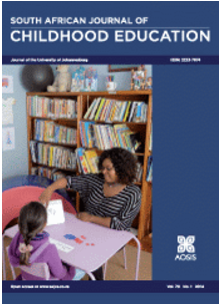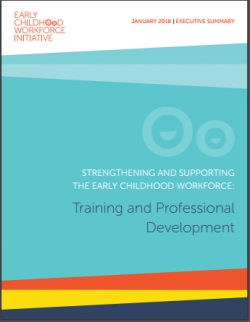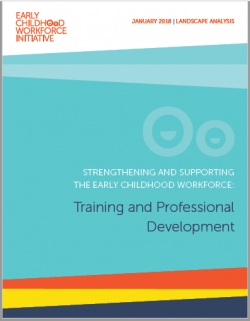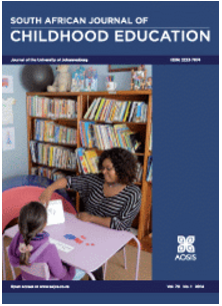Interactive reflective journal writing as a tool for mentoring and teacher professional development : a case study
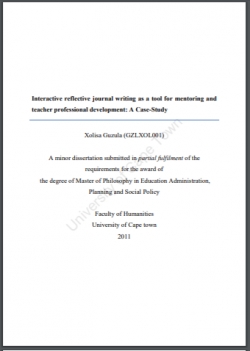
Type
Thesis
Authors
Category
ECCE, Foundation
[ Browse Items ]
Publication Year
2011
Publisher
University of Cape Town, School of Education, Cape Town, South Africa
URL
[ private ]
Pages
103 p.
Subject
Early childhood education, Primary education, Foundation Phase, Teachers, Teaching, Teacher development, Interactive Reflective Journal, Literacy, Language, Implementation, South Africa
Tags
Abstract
Despite a range of literacy strategies and teacher training efforts devised by the Western Cape Education Department, there have not been significant changes to classroom practice or to learner achievement. This dissertation explores interactive reflective journal writing as a tool for teacher professional development and mentoring. The aim of this case-study is to ascertain whether and how one grade two teacher‘s practice developed as a result of keeping an interactive reflective journal during the process of on-site coaching. The main question that it aims to answer is whether interactive, reflective journal writing can enable the teacher to develop her understandings of alternative approaches to literacy and help her to develop her practice. Sub-questions are: What can be considered as evidence of the take up of emergent literacy and balanced approaches in a Grade Two teachers‘ journal writing?; What can be considered as evidence of take-up of reflective practice in the Grade Two teacher‘s journal? Drawing on a socio-cultural approach to literacy (Barton, 1994, Heath, 1983, Street, 1984, 1993, 2002), I investigated a teacher‘s take up of early literacy approaches which include emergent, whole language and balanced literacy approaches. Furthermore, drawing on studies of reflective practice (Dornbrack, 2008, Potter and Badiali 2001, cited in Villegas-Reimers, 2003), as well as an action research approach (Kemmis, 1993, McNiff, 2002), I investigated the take up of reflective practice. The main findings of the study show that: Interactive journal writing can be a significant teacher development tool though it is easier to encourage technical reflection than practical and critical reflection. This is evidenced by the fact that: the teacher developed a relatively good understanding of emergent literacy and balanced approaches to literacy learning. However, the teacher‘s reflection was mainly of a technical nature. Take-up is an uneven and non-linear process that develops over time. I argue that interactive reflective journal writing as a tool for continuing professional teacher development succeeds best when teachers themselves are integrally involved, reflecting on their own experience and where there is a strong school based component (DoE, 2007).
Description
Thesis (MPhil)--University of Cape Town, 2011
Number of Copies
1
| Library | Accession No | Call No | Copy No | Edition | Location | Availability |
|---|---|---|---|---|---|---|
| Main | 837 | 1 | Yes |
